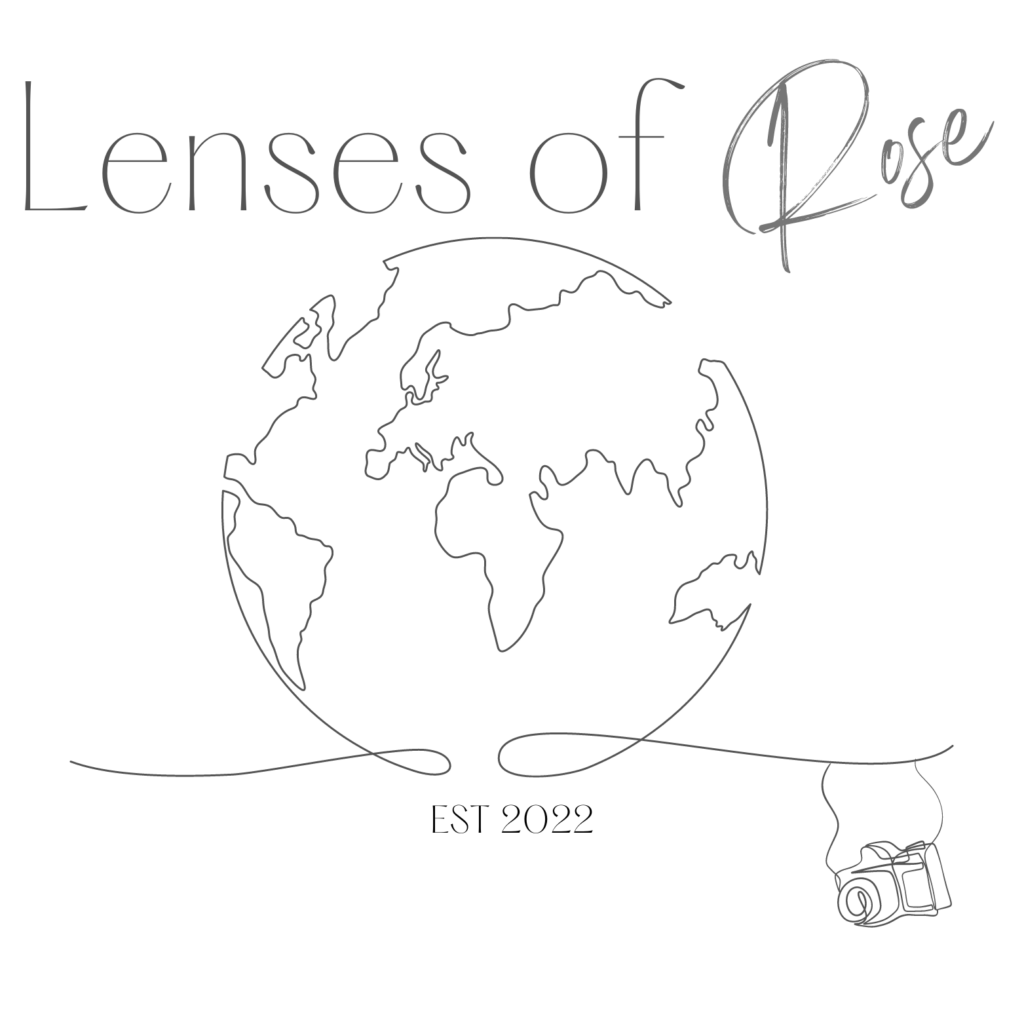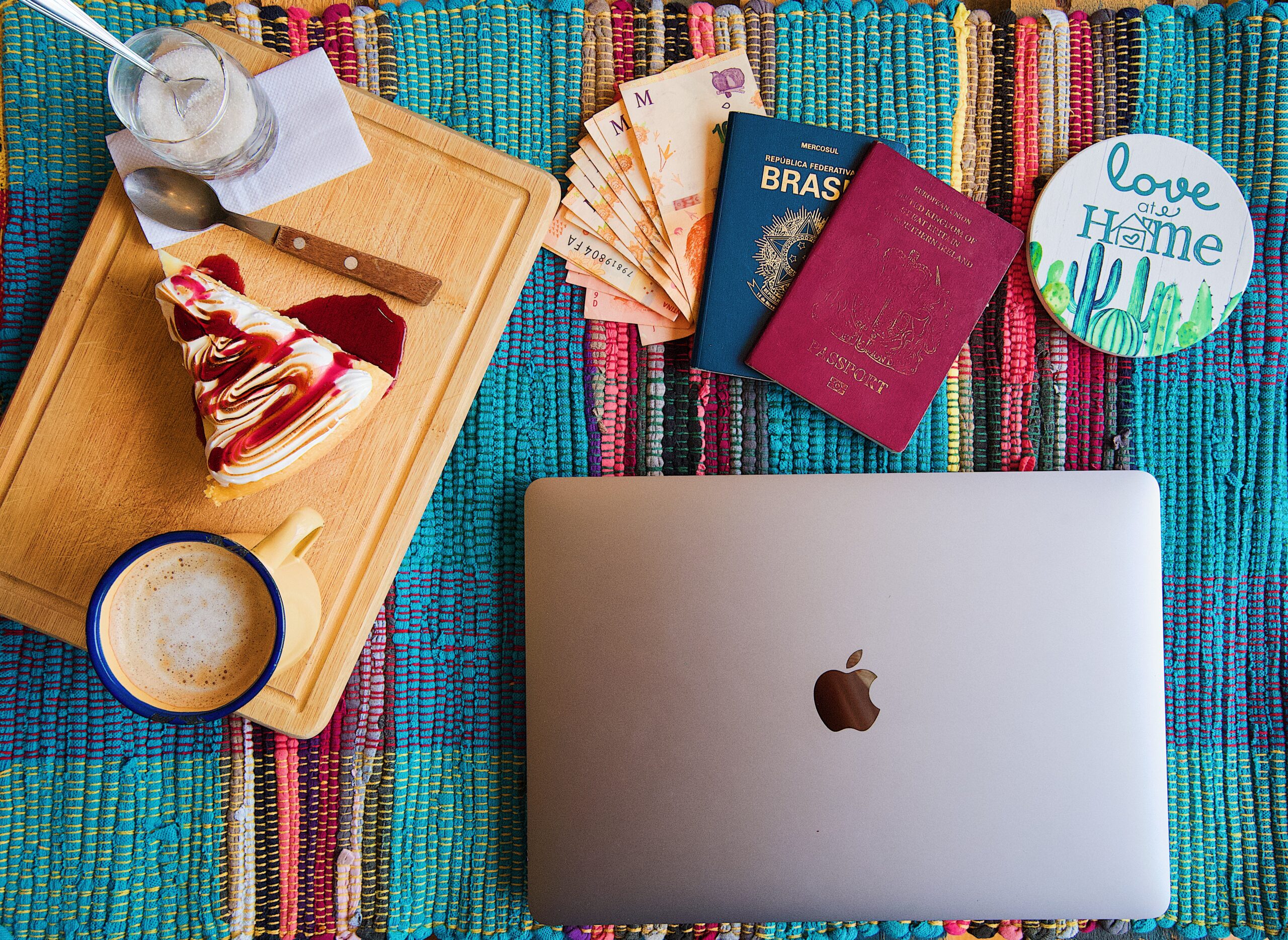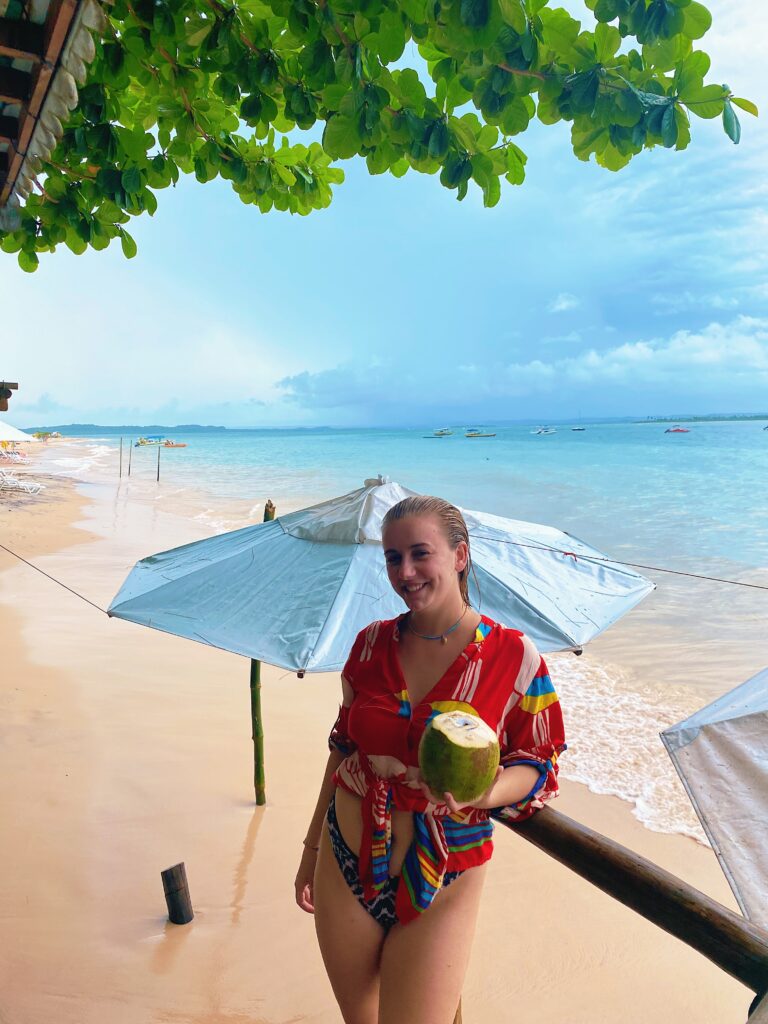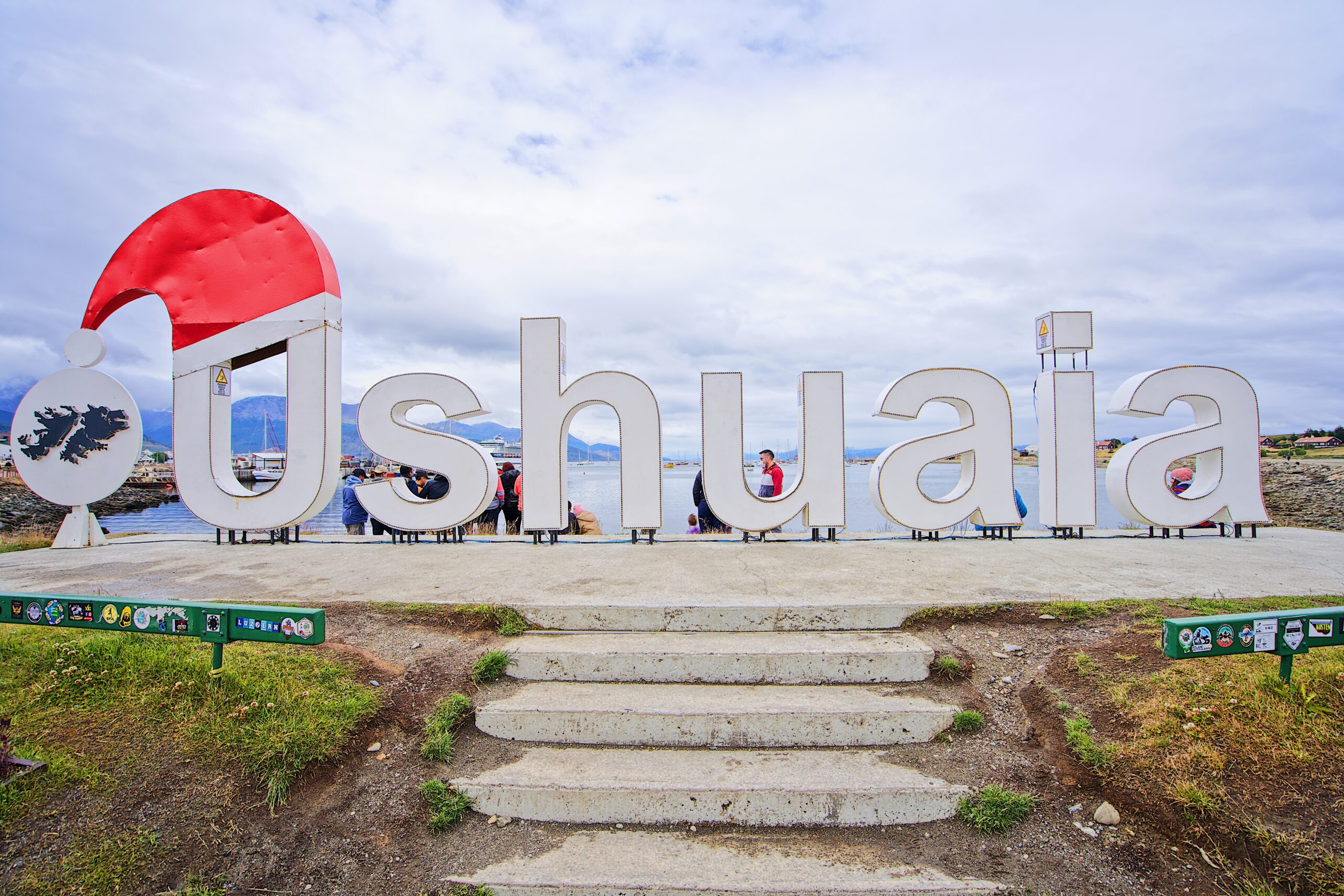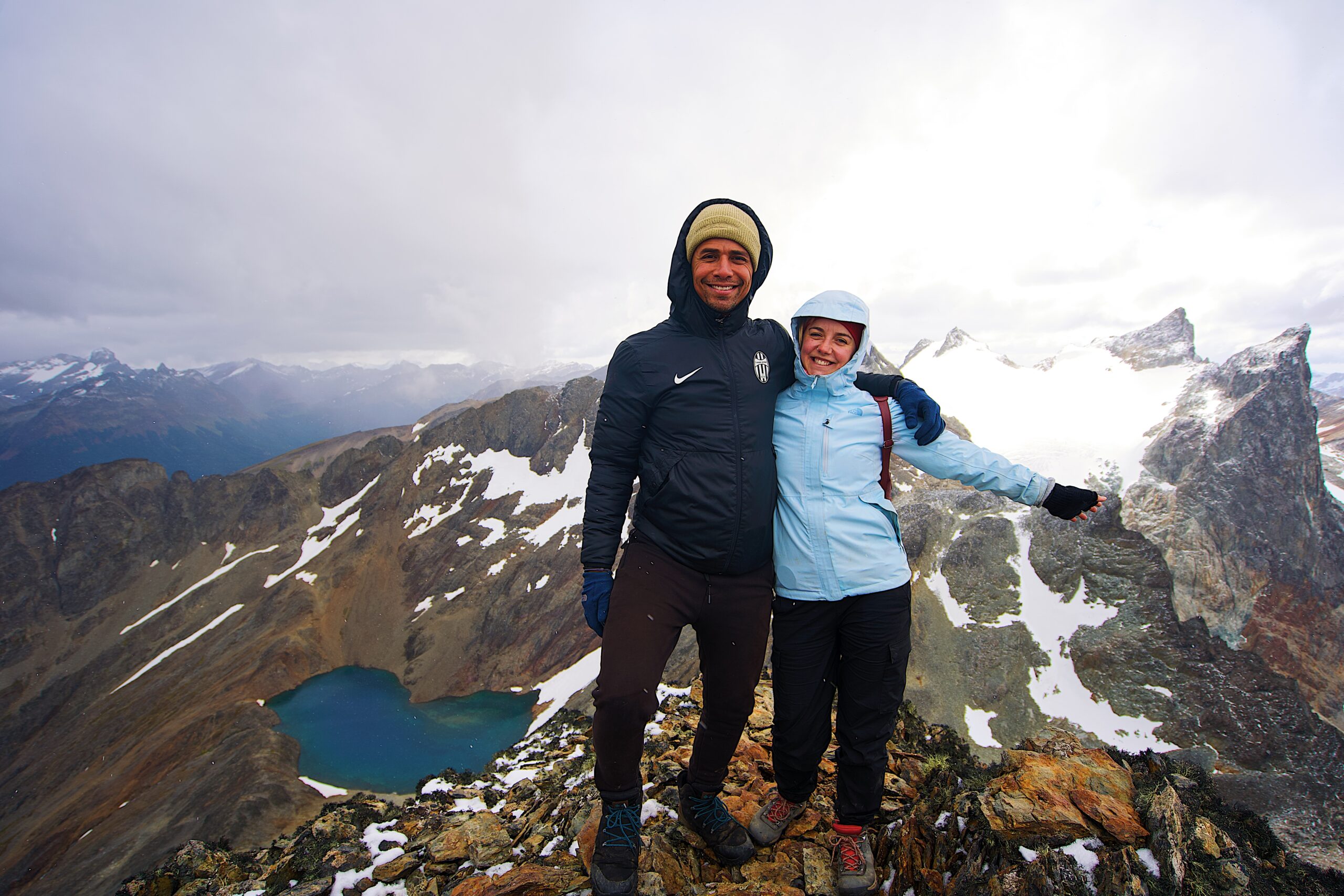Money money money!
Let’s be honest money is one of the most important factors when it comes to travelling. Depending on where you’re going your expenses will differ and of course depending on the style you want to travel, your daily budget will also be different. Even if you aren’t in need of a strict budget, trust me, those pennies add up and this is worth a read just to help with some ideas on how to save them.
Backpacking on a budget is very achievable and my biggest tips are below:
1- Travelling light – save money on not paying those nasty checked baggage fees on domestic flights
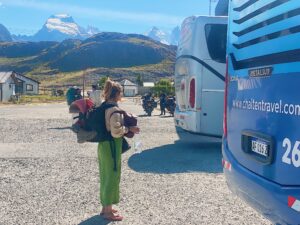
Something we all learn the hard way. Travelling light is the best way to go about your trip. First of all, you aren’t going to need as much as you think. (I guarantee you’ll find a favourite couple of outfits and you will live in them).
Second of all, it’s going to make a big difference if you’re planning any domestic flights on your travels. These days most domestic flights will charge for checked luggage. Search engines like sky scanner will give you a price for your flight and very often their reasonable until you get to the very end and you’re asked if you want to add checked luggage. Normally this isn’t cheap and if your flying with a budget airline the price can sometimes be as much as the flight.
With that being said, a lot of budget airlines also have a strict hand luggage allowance. You will find that the majority of airlines have an average of 7-10kg for your carry on luggage, but with many flight companies you have the option to add or increase the weight of your hand luggage. I tend to do this depending on the length of my trip and the climates I’m visiting.
However, over the years I’ve learned a thing or two on how to hack being caught out with an extra fee at the check in desk or the boarding gate. Always wear your heaviest shoes, hold your coat in your hands and have an outfit with pockets. It sounds silly but most flight companies will ask if there is anything you can hold before you board the plane. I literally carry my coat, have my hiking boots on, fill my coat pockets with whatever is causing my bag to be heavy. If it’s on your person there will be no problem.
International flights tend to always include checked luggage so keep this in mind, especially if your travelling by bus once you land at your destination. In some countries you can be lucky and find domestic journeys with checked bags included, however this tends to be more expensive.
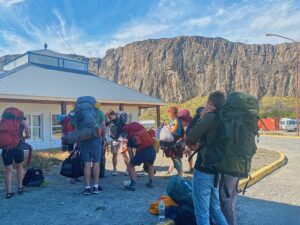 Something to note when travelling is normally the cheapest way to get around is via busses. Bus companies hardly ever drop you off at your exact location so you will need to walk with your bags to where you are going.
Something to note when travelling is normally the cheapest way to get around is via busses. Bus companies hardly ever drop you off at your exact location so you will need to walk with your bags to where you are going.
You will find that having a backpack in developing countries will save you money as trying to drag a suitcase through the gravel roads can be a nightmare and you’re find yourself needing to order taxis or Ubers and these are the pennies that really start to add up.
If your travelling with a backpack, 50L is the maximum I recommend if you’re taking it on as hand luggage along side your personal bag. We have learned, countries within Asia, South America and Europe you rarely come into issues with airlines they are generally more relaxed and aren’t going to have much of a problem with your carry on luggage. However countries like Australia and New Zealand can be a bit more picky so best to be prepared to fill your pockets.
Average baggage requirements for carry on Is – 22x14x9 inches and a volume of 45-50L
Your personal bag must always be small enough to fit under the seat.
2- Accomodation – Hostels and loyalty programmes are where you get to save a pretty penny.
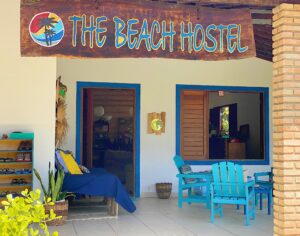 The obvious one when backpacking is to find the cheapest accomodation. Around the world there are so many hostels, hotels, apartments for rent and in some countries you could be paying as little as a couple of quid a night.
The obvious one when backpacking is to find the cheapest accomodation. Around the world there are so many hostels, hotels, apartments for rent and in some countries you could be paying as little as a couple of quid a night.
Hostels are on average your best option for long term travel. Quoting prices and comparing locations are the best places to start. You will find that the further out of the city centre the accommodation is, the cheaper it can be. When researching, make sure there is an easy transport that is affordable to where you want to go.
We always look if there is a public transport, free shuttle services or if the accomodation is within walking distance of the main attractions. If there isn’t reasonable transport available where you choose to stay you may find yourself spending more than you would if you booked the more expensive accomodation. Of course, in some places you need transfers regardless, however it’s important to keep in mind.
It’s also always a good idea to compare prices between different search engines, for example: booking.com and HostelWorld. Even though the prices are usually similar some platforms provide a loyalty system. We use booking.com to do the majority of our booking reason being their Genius loyalty programme. The Genius program can give you 10-20% extra discount on prices that other customers won’t get and when you reach level 2 you can qualify for complementary breakfast and free room upgrades at selected locations. On HostelWorld, although they don’t provide a loyalty programme, they have a section called global travel deals. This shows some of the best hostels in certain regions and some are heavily discounted!
With that being said, if you have to pay online for your booking keep in mind these search engines take a percentage of the fee you pay as commission. This will be included in the price. In some places you may be better off paying at the accommodation a cheaper rate as you won’t have to pay the commission. However, keep in mind if the place you are looking to stay has limited availability, its better to book online, otherwise your risk missing out. On the other hand if you find many options, give them a call or pay for it when you arrive!
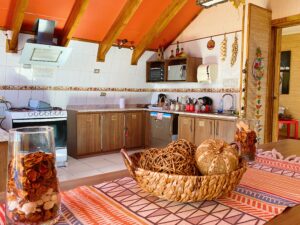
Hostels are of course a great way to save money and a great way to meet people but sometimes you might find the more of you there are, it can be beneficial to look for accommodation in hotel rooms, or appartments on AirBNB.com as you can split the cost.
Last thing to note when booking accommodation for your stay is the amenities, I always check for a kitchen and prefer to book places with breakfast included.
Another way to save is to offer your services. If you plan to spend a reasonable amount of time in the same area, see who is looking for workers. You can find many options to volunteer for accommodation or food. Sometimes even both! One of the apps regularly used for this is WorkAway.
3- Eating in, not out – lets go home with some cooking skills

I won’t lie, if you’re a foodie, food itself can be a highlight of your travel experience! It’s one of the best ways to learn about a country and can be the best part of your journey.
However, eating out isn’t always cheap and can really add up if you’re having three meals a day at a restaurant. Depending on the countries you’re visiting, most hostels around the world provide basic needs to cook for yourself. It’s easy to get carried away and eat out for every meal, however its just not economically smart.
If you’re like me, trying local cuisines is something you don’t want to miss out on! Do some research and make a day trip out of it. This sounds silly… but consider eating out as a treat and something for you to look forward to while visiting a certain place. I like to find one or two restaurants or a food market that have the best reviews for the food you’re desperate to try. I also like to look at the the menu prices and compare. Another give away is how busy a restaurant is. Many countries specialise in street food. I’ve learned along the way that it will be some of the best food you get to try and usually the cheapest.
When arriving at my next destination, the first things to do is to try organise your food. First check out what the hostels have in their free section. There are usually basic condiments or items travellers have left behind when they have moved on. After plan your meals.
Personally I try not to cook everyday but enough to last a couple. This way if you are arriving home from a trip late you can just pop it the microwave. I also like to buy fruits and snacks for during the day this will avoid the temptation to buy food when you are out and on tours. Locally sourced food is usually the best option to go for as it tends to be the best priced and the freshest.

Another tip… from a seriously big coffee lover… Get yourself some coffee from the supermarket. Don’t buy one out everyday! Seriously, this adds up and because it’s such a small amount you don’t notice it but overtime you will see treating yourself to a coffee everyday is going to eat away at that budget of yours!
Some countries sadly don’t have access to filtered water straight from the tap. This is something to keep in mind if you are travelling to one of those. You may only have access to bottled water if the hostel or accomodation doesn’t provide filtered. Unfortunately, this actually happens a lot so something I recommend is to purchase a reusable bottle with a filter inside. Boiling water kills bacterias so if you want to save you can boil, put in your filtering bottle for extra protection and refrigerate. This way you don’t have to keep buying bottled water and as an added bonus you won’t be adding to plastic waste.
4- Partying – drinking alcohol and thinking you are a millionaire… we’ve all been there.
A lot of people do love a good drink when they are on holiday or on their travels. Why not? you have earned it and it’s also a very sociable aspect of your trip. Unfortunately this is where your wallet can get a nasty sting. In many countries around the world, alcohol can seem very cheap, especially if you’re coming from one that taxes alcohol like crazy. However, no matter the price, it will soon add up and this will have a big impact on the budget.
Im not saying don’t drink at all… That would make me a hypocrite, however I do try to limit it.
Buying local and non imported alcohol is always going to be the cheapest option. You’ll find in most hostels setting, people will opt for a drink around the table with a few card games, then heading to the bar. Or it’s common to “pre drink” before heading out. Otherwise it can end up with you spending a lot of money on your night out.
Planning your drinks as a “treat” can be a big (or biggest!) help for your budget, as said on tips about food.
5- Picking your destination – If a long term trip is what you’re aiming for, do your research on where your money will last the longest.
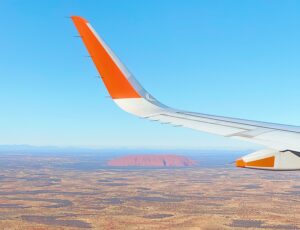
If your plan is to travel for as long as you can until your money runs out or you’re budgeting for a few months in a certain continent, all of my previous steps are something to keep into account. Because of currency, exchange rates, economy and country development, your money will last much longer in some places compared to others
Some countries offer a work visa depending on your age and where you are from. So a popular way to travel these is to ‘work’ your way around whether it is be by a “hop on hop off” bus or by buying a camper van. It’s usual to travel for a while and when the cash gets low, to find a job.
Popular destinations for this are Australia and New Zealand. Although it is still common for travellers to tour around for a month or three, it isn’t as common because they aren’t the most affordable and require a certain amount of savings to even apply for a visa!
However, developing countries e.g. Thailand and India are very different in terms of expenses, considering where you are from. You’ll find that your money will stretch further and you don’t need a considerably huge budget. This is because the cost of living is much less and the currency you are going with e.g. pound, euro or dollar may be much stronger than the local.
In saying all this it is always smart to do your research. Checkout what current countries are like they change form year to year so I would always check out rough cost of living expenses and base my budget from there. I also find it good to reach out to fellow travellers who have maybe just done the root you are planning to go on and ask them for a rough guide on budget and expenses.
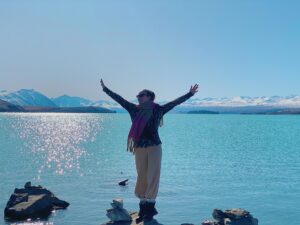
I hope my tips for travelling on a budget are able to help you along your way. Travelling can sometimes be stressful especially when the budget takes a toll. Remember you decided you wanted to travel to see and experience new places. Don’t put too much pressure on yourself, learn for next time and enjoy it. You are going to find many travellers who have maybe been travelling for longer than you or have been able to spend more time in certain places. Just remember everyones journey is different and that’s ok, there is no right or wrong way to travel. Its your experience and no one else’s.
